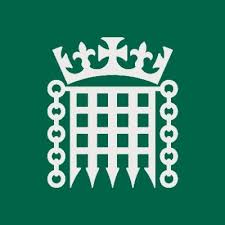Jack Jones – 1923 Speech on Deportations to Ireland
The speech made by Jack Jones, the then Labour MP for Silvertown, in the House of Commons on 12 March 1923.
I beg to move, “That this House do now adjourn.” I hope, Sir, you will excuse me if during the course of the discussion I may display a certain amount of ignorance, as is only natural. I do not claim to be a constitutional lawyer. I only claim to ask for my fellow citizens their constitutional rights. We have been led to understand that the common citizen has a common right. The question I asked the Home Secretary to-day was not raised because I am a believer in the policy of those who are trying to upset the Free State Government in Ireland. I have been one of their most persistent and consistent opponents ever since they adopted the policy of trying to destroy the Treaty between Ireland and Great Britain and I have run some little risk in that connection. Therefore I am not here as a champion of those who want to destroy constitutional relationships between Great Britain and Ireland, but I believe even the Devil himself ought to get justice, even if he cannot always give it. Therefore I want to raise the case in the first place of one whom I happen to know. The only crime he has committed as far as I know—and I am acting upon information, personal of course—is that for some period he was the secretary of a branch of the Irish Self-Determination League in the East End of London, and he acted when all of us who are Irishmen stood on the same ground, and under similar circumstances will stand again, but when peace was made, when the two countries entered into an Agreement signed by the representatives of both, and when afterwards that Treaty was agreed upon by a Free Vote of the people North and South, and when eventually the Parliaments of Northern Ireland and Southern Ireland were constituted we accepted the situation loyally as democrats and agreed on the principle that the majority must govern. However we might have differed upon details we agreed upon the main principle.
What has happened in the meantime? A certain number of people in the South and West of Ireland have repudiated the Treaty, have differed from the understandings arrived at between the representatives of the Government of both countries and have gone in for actions which have been more injurious to Ireland than anything the British Government could do against Ireland. None of us are defending the attitude which has been taken up, but there is a certain number of people in Great Britain who, because of their past history, have evidently been on the books of the Government of this country and have made themselves unpopular and, perhaps to some extent, undesirable. Amongst them there are men and women who have washed their hands of this policy ever since the Treaty was signed. Some of these have been arrested equally with those who may have been guilty.
The point I want to raise is this. Since when has deportation become a British industry? I know aliens have been deported for offences against the State. That may be justified in international law. What I am protesting against is the deportation of our own English-born citizens to another country because of a constitution which you have arranged. The Home Secretary to-day in answer to questions said he was doing so under certain defined powers contained in Acts of Parliament. I notice that one of the Acts was passed before the Treaty was signed, which in my opinion, although I am not an expert in legal matters, makes a considerable difference. The Regulations that existed under the Defence of the Realm Act in War time are not exactly the same as after War time. They have been modified very considerably in my opinion, although of course I would not claim to have the same kind of knowledge as some right hon. Gentlemen opposite. If a British citizen feels he has no security that at midnight policemen and detectives may break into his house, escort him to the coast and take him away to any place they like, no man in this House or outside can feel secure in the expression of his political views.
We have always posed as being leaders of constitutionalism all over the world, as being the Mother of Parliaments, whose Rules have been adopted by all other Parliaments, and we have been looked upon as the champions of liberty all over the world. I am not asking you to be the champions of licence. If a man breaks the law, let him be tried where he lives. Surely the law of England is strong enough to punish an Irishman if he breaks the law. But we have a bigger argument than that. What is going to be the result of this policy of the wholesale deportation of suspected persons from Great Britain? It is to feed the Irregulars with an argument which they have been using all the time, and which they can use now with greater force than ever. The argument will be that the Free State Government of Ireland is in a regular relationship with the British Government, and while we are striving to break down the barriers between Great Britain and Ireland which existed in the past and trying to kill race prejudice, we now have an argument that the Government in Great Britain is used against the people in Great Britain of whom the Free State Government may have a suspicion.
I am not suggesting too much in asking this House to realise that citizens of this country who have been arrested, if they have committed a crime should be tried for it here. I am not defending any man who commits a crime. If a man wants to break the law, he must take the consequences of having done so. We are asking that this course of procedure shall be negatived and that we shall no longer put in force this policy, imitated from countries with which we have been at war, of sending away people because they have committed a crime. The ease to which I particularly referred in my question was that of a man who occupies a responsible position, whose whole life depends upon the position in which he now finds himself. I may be guilty also, because during the period this man was secretary of the Self-determination League in East Ham and Forest Gate was a member of the same organisation. I am not ashamed of it, and if there is any deportation to come along I will go. But I am not appealing for any mercy; I am only appealing for common justice, and common justice in this particular case, and the other case to which I can refer. The law of this country has been broken. I know that we shall have cases quoted against us, eases that occurred during the War. I have had some of those cases and I know exactly what they mean. During the War Irishmen coming to Great Britain carrying on a campaign against the interests of the British Empire, might find themselves in durance vile subject to all sorts of penalties, but I am suggesting that the Treaty was signed between Great Britain and Ireland, as a consequence of the movement that took place in Ireland, after the Defence of the Realm Act Regulations were so amended as not to give the same power as existed under the Defence of the Realm Act as originally instituted.
Now we find the two Acts have got to be quoted. When did these two Acts become correlated so as to enable you to arrest any Irishman, and those not in the true sense of the term Irish, but who were born in this country, though probably of Irish parentage, and as a consequence are English citizens? What authority exists to deport English citizens from their own country to be tried in another country, it may be under martial law, for all we know? Have we agreed that martial law shall exist for English citizens? I suggest that we have amended those portions of the Defence of the Realm Act. Therefore, in moving my Motion, I ask those responsible for the government of this country to release all those persons who have been domiciled in Great Britain. Let them be tried here for any offence which they may have committed, and let the law of England deal with them as they happen to be English citizens.



